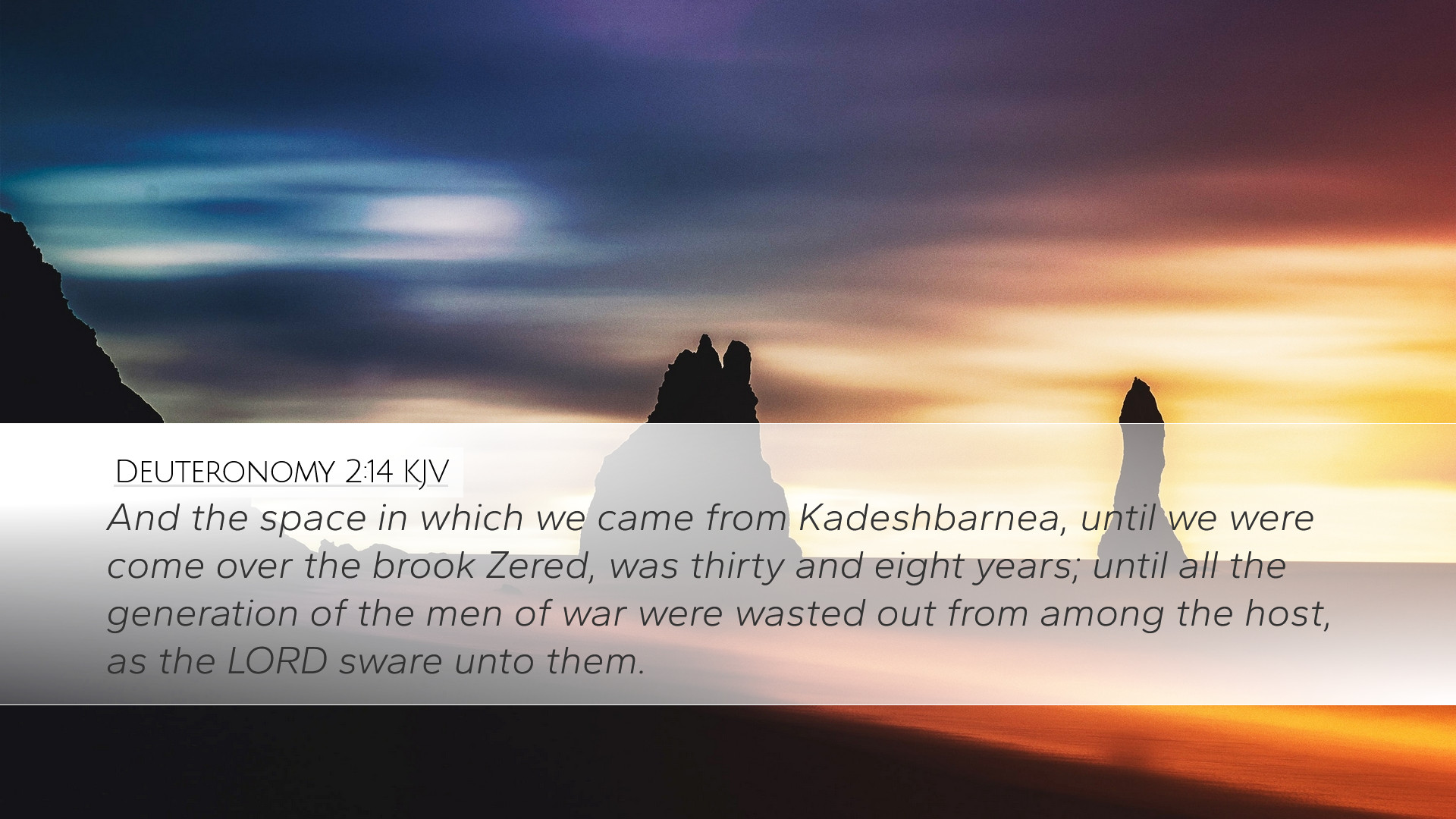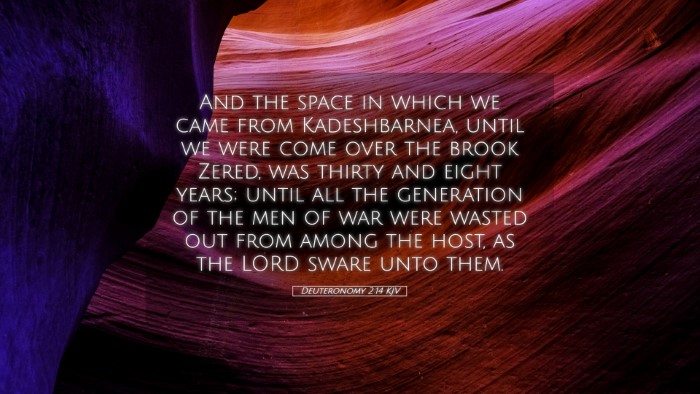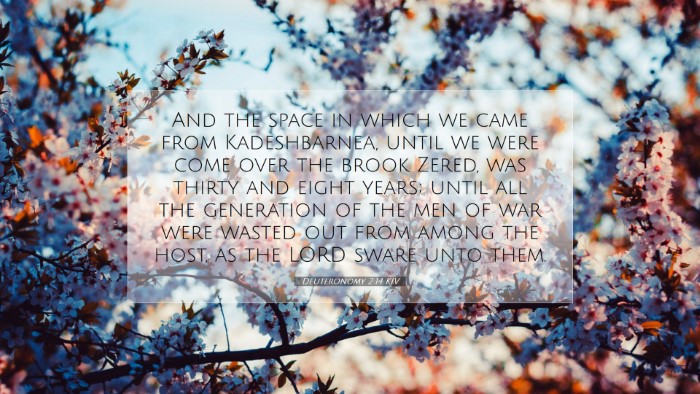Commentary on Deuteronomy 2:14
Bible Verse: "And the space in which we came from Kadeshbarnea, until we were come over the brook Zered, was thirty and eight years; until all the generation of the men of war were wasted out from among the host, as the Lord swear unto them."
Introduction
This verse serves as a pivotal point in the history of Israel during their wilderness wanderings. It marks the conclusion of a lengthy period of judgment and a transition to a new era under God's direction. Understanding this verse requires acknowledgement of its context within Deuteronomy and its implications for Israel's identity and covenant relationship with God.
Contextual Background
Deuteronomy, often referred to as the second law, encapsulates the speeches of Moses as he prepares the Israelites to enter the Promised Land. The mention of Kadeshbarnea and the brook Zered situates the narrative within a geographical and historical framework that was significant to the Israelites. They were not merely wandering; they were under divine tutelage and discipline.
Matthew Henry's Insights
Matthew Henry notes that this period of 38 years was a direct result of the Israelites' rebellion against God. Their hesitance to enter the Promised Land and the subsequent fear-driven disobedience resulted in divine judgment. Henry emphasizes the importance of understanding God's justice in allowing an entire generation to perish before the promised inheritance could be realized. This underscores a theme of accountability in worship and obedience as it relates to God's covenant people.
Albert Barnes’ Perspective
Albert Barnes highlights that the "38 years" represents a time of testing and preparation for a new generation that would be capable of entering Canaan. He points out that this verse serves as both a pause for reflection and a declaration of divine providence. Although the deaths of the men of war signal judgment, it also marks the faithfulness of God to guide His chosen people through a difficult process towards a favorable outcome. Barnes sees this as an illustration of God's management of human history and His timing in fulfilling promises.
Adam Clarke's Commentary
Adam Clarke expands on the idea of the brook Zered as a notable geographical landmark that symbolizes transition. He explains that the valley of Zered demarcates a boundary not only geographically but spiritually. It is a place where the old generation, with their ingrained disbelief, passes away, making way for a new generation that is more attuned to faith in God. Clarke argues for the significance of this transformation as essential for Israel’s future victories and establishment in the land flowing with milk and honey.
Theological Reflections
This verse provides deep theological insights relevant for understanding God's character—His holiness, justice, and mercy. The judgment faced by the Israelites acts as a stark reminder of the consequences of disobedience and lack of faith. Yet this gives way to an opportunity for renewal and fulfillment of God's promises for those willing to trust Him.
- The Nature of God's Discipline: The prolonged wandering in the wilderness served as a teaching moment for Israel. Though it was a harsh experience, it was also an essential part of a divine strategy to refine and prepare them for what lay ahead.
- The Fulfillment of Promise: God's promise to Abraham, Isaac, and Jacob was not forgotten; each death in the wilderness brought the people closer to their inheritance—emphasizing God's faithfulness throughout generations.
- The Importance of Obedience: The text reminds readers that obedience to God's commands is not optional. The fate of the previous generation serves as a warning and encouragement for future generations to adhere to God's will.
Practical Applications
This commentary invites pastors, students, and theologians to derive practical insights for contemporary ministry and personal application. The themes of judgment and grace prompt reflection on the following aspects:
- Reflection on Leadership: Church leaders are called to guide their congregations with courage and faith, learning from the mistakes of past leaders who caved under pressure.
- Endurance in Trials: Like the Israelites, believers today may experience periods of uncertainty and discipline. These times can lead to growth and maturity in faith when viewed through a theological lens.
- Hope in Despair: Even in contexts of seemingly unending delays or discontent, God's plan is unfolding. Faith in divine timing reassures believers of the promise of restoration.
Conclusion
Deuteronomy 2:14 encapsulates the reality of human experience in light of divine sovereignty. It implores believers to remain steadfast, knowing that every moment—good or bad—is within God's providential care. As highlighted by Henry, Barnes, and Clarke, our understanding of such scriptures should lead to newfound obedience, rejuvenated faith, and unfaltering hope as we navigate the wildernesses of our own lives.


